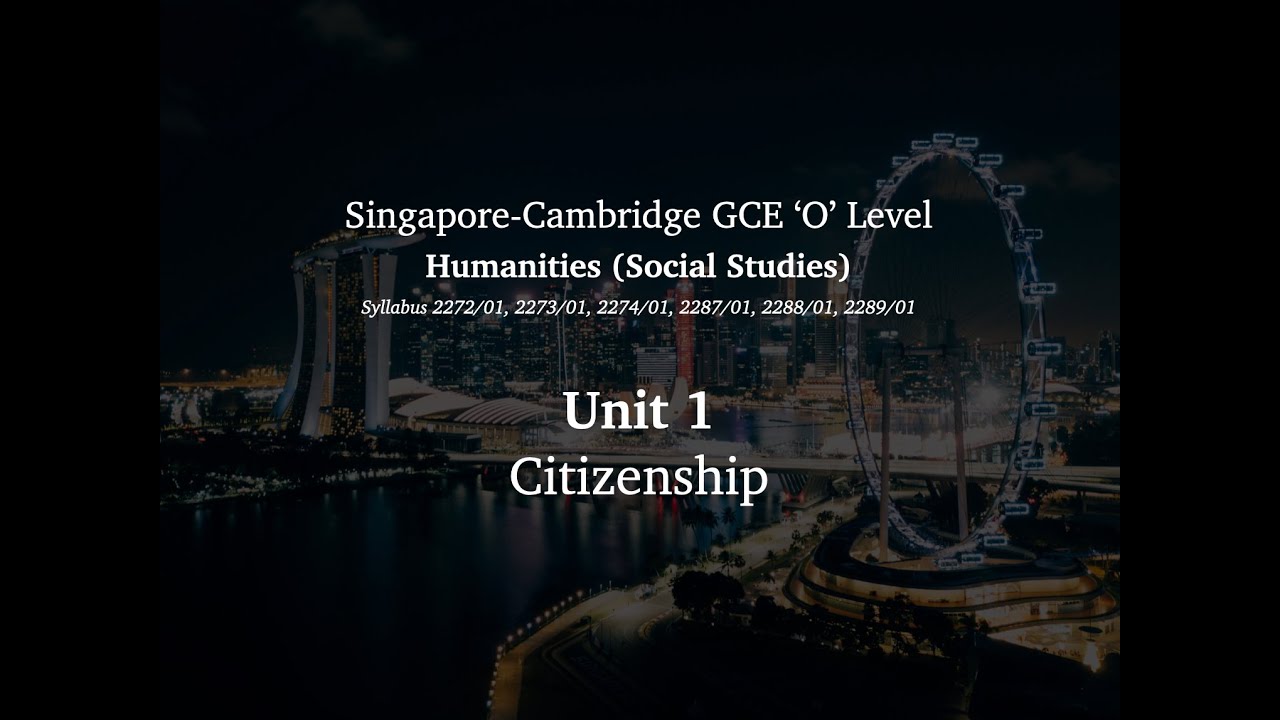Materi Kewarganegaraan Indonesia
Summary
TLDRThis video discusses the concept of citizenship, particularly in the context of Indonesia. It explains the legal and emotional bonds between citizens and their country, detailing the various types of citizenship such as ius sanguinis, ius soli, single citizenship, and limited dual citizenship. The script also outlines the different ways a person can acquire Indonesian citizenship, such as through birth, marriage, application, or parental nationality. Additionally, it highlights official population documents like family cards and electronic identity cards, providing a comprehensive overview of citizenship laws and processes.
Takeaways
- 😀 A country is an abstract entity, with visible elements like its population, government, and territory.
- 😀 Citizenship represents a legal and emotional bond between an individual and their country.
- 😀 According to Indonesian law, citizenship is everything related to the state.
- 😀 Citizenship can be understood in two senses: legal (based on laws) and sociological (based on emotional ties).
- 😀 There are four main principles of citizenship in Indonesia: ius sanguinis, ius soli, single citizenship, and limited dual citizenship.
- 😀 The ius sanguinis principle grants citizenship based on parents' nationality, regardless of the place of birth.
- 😀 The ius soli principle grants citizenship based on the place of birth, applied in countries like the U.S., Canada, and Indonesia.
- 😀 The single citizenship principle states that an individual can only have one citizenship at a time.
- 😀 The limited dual citizenship principle allows a person to hold dual citizenship under specific conditions, such as when they turn 18.
- 😀 A person can acquire Indonesian citizenship by birth, naturalization, marriage, parental involvement, voluntary declaration, or by applying for it.
Q & A
What is the main focus of the citizenship course discussed in the transcript?
-The main focus of the course is on explaining the concept of citizenship in Indonesia, including its legal, sociological, and constitutional aspects, as well as the different principles and ways to acquire citizenship.
What are the two types of citizenship mentioned in the transcript?
-The two types of citizenship are 'citizenship in the legal sense', which refers to the legal relationship between a person and the state, and 'citizenship in the sociological sense', which involves emotional and cultural ties such as history, descent, and homeland.
What are the four principles of citizenship in Indonesia as described in the transcript?
-The four principles of citizenship in Indonesia are: 1) the principle of jus sanguinis (citizenship based on descent), 2) the principle of jus soli (citizenship based on place of birth), 3) the principle of single citizenship (a person can only have one citizenship), and 4) the principle of limited dual citizenship (dual citizenship status for children under 18).
What is the difference between jus sanguinis and jus soli?
-Jus sanguinis determines citizenship based on the parents' nationality, regardless of where the child is born. Jus soli determines citizenship based on the place of birth, meaning a person born in a country is automatically considered a citizen of that country.
What is the principle of single citizenship?
-The principle of single citizenship means that a person is not allowed to hold more than one citizenship, and it ensures that individuals are legally recognized as a citizen of only one country.
What is the principle of limited dual citizenship?
-The principle of limited dual citizenship allows children to hold dual citizenship until they reach the age of 18, after which they must choose one citizenship.
What is the significance of population documents in Indonesia?
-Population documents in Indonesia, such as the population biodata, family card, electronic identity card (E-KTP), resident certificate, and civil registration certificate, serve as official records that provide important personal and legal information about a citizen's identity and status within the country.
How can a person acquire Indonesian citizenship?
-A person can acquire Indonesian citizenship through several means: by birth in Indonesia, through a citizenship process granted by the government, by applying for citizenship, through marriage to an Indonesian citizen, or through the citizenship of one or both parents.
What is the role of emotional ties in citizenship, as explained in the transcript?
-Emotional ties in citizenship refer to the sociological aspect, where a person’s relationship with the country is not solely legal but also rooted in feelings of belonging, such as historical ties, ancestral connections, and a shared sense of homeland.
What is meant by 'bipatriate' and 'multipedia' in the context of citizenship?
-'Bipatriate' refers to a person holding dual citizenship, while 'multipedia' refers to a person holding multiple citizenships, as opposed to having a single citizenship status.
Outlines

This section is available to paid users only. Please upgrade to access this part.
Upgrade NowMindmap

This section is available to paid users only. Please upgrade to access this part.
Upgrade NowKeywords

This section is available to paid users only. Please upgrade to access this part.
Upgrade NowHighlights

This section is available to paid users only. Please upgrade to access this part.
Upgrade NowTranscripts

This section is available to paid users only. Please upgrade to access this part.
Upgrade NowBrowse More Related Video

Citizenship & Right of Citizens of India

Reformasi UU Kewarganegaraan Indonesia - [Metro Siang]

Highlight Hukum Perdata Internasional "Kewarganegaraan"

Perbedaan Warga Negara, Kewarganegaraan, dan Pendidikan Kewarganegaraan?

2022 'O' Level Humanities (Social Studies) Unit 1 - Citizenship

Kewarganegaraan Indonesia? Apa itu?
5.0 / 5 (0 votes)